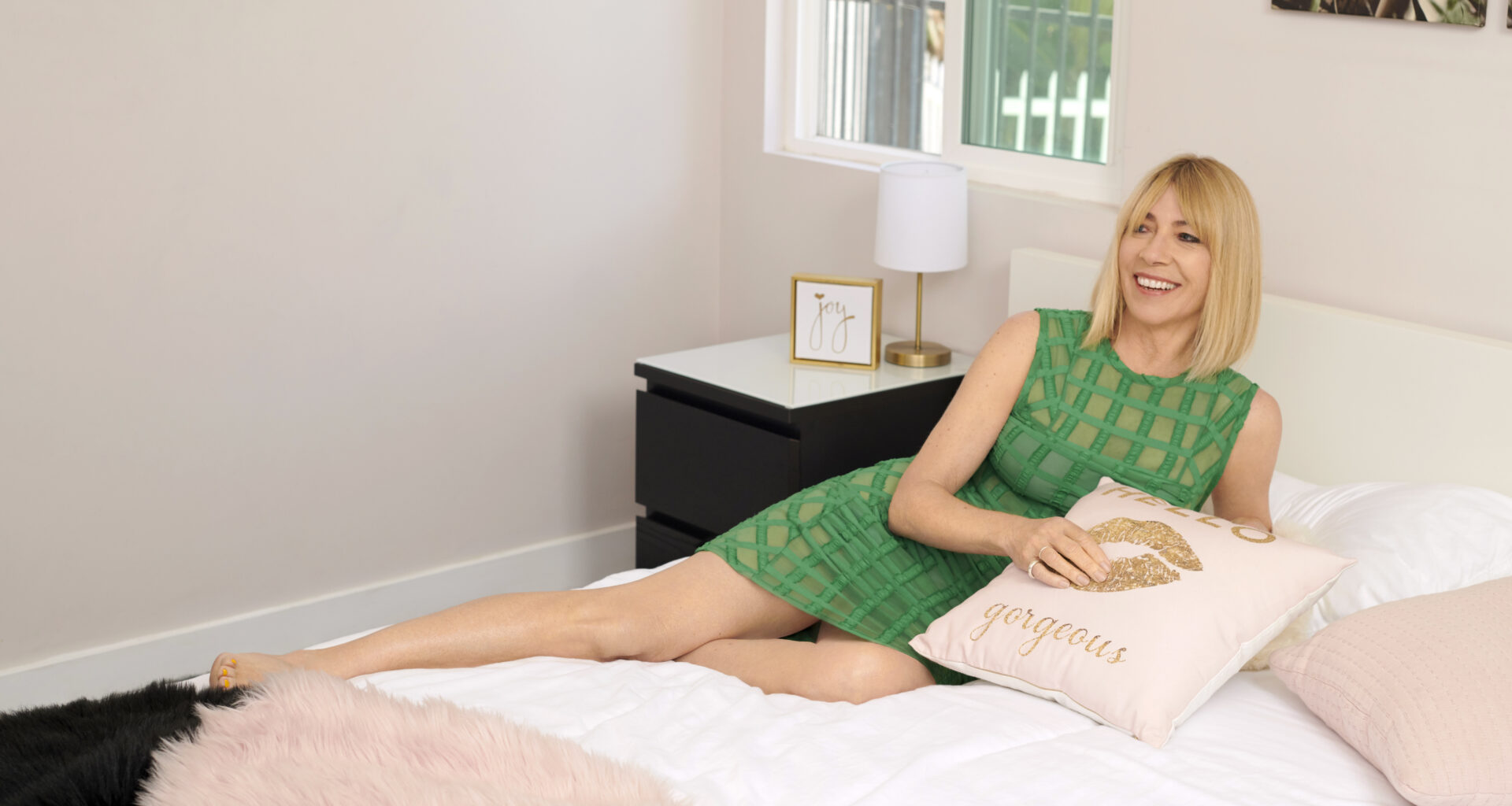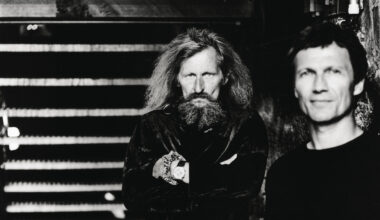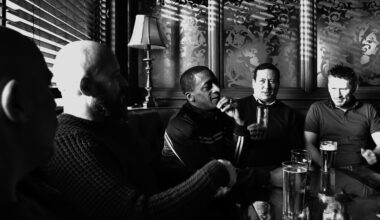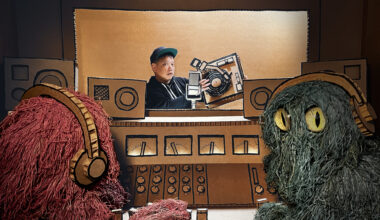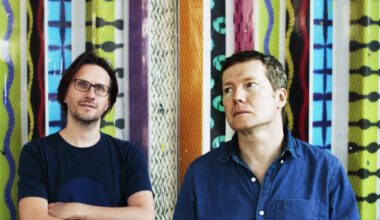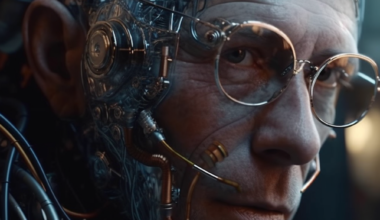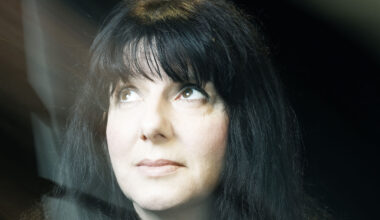In which the ice-cool alt-rock queen serves up a new album packed with electronic tricks. ‘No Home Record’ also happens to be her solo long-playing debut. She’s full of surprises is Kim Gordon
To meet Kim Gordon – as Electronic Sound does in London, in the nondescript lobby of a Premier Inn a few hours before her show with Bill Nace, as Body/Head – is to meet someone who’s not only been a significant figure in experimental music making for almost 40 years, but is also an accomplished visual artist, successful writer and sometimes actor. Additionally, no matter how much she might shrink from the notion and however slippery its definition, she is also a universally acknowledged exemplar of cool.
However, rather than some hip happenstance, it was a random moment of acute social embarrassment that was the genesis of Gordon’s debut solo album. ‘No Home Record’ was produced by Justin Raisen whose brother, Jeremiah, she met in an LA restaurant.
“We were sitting next to each other,” recalls Gordon, in her characteristically quiet voice. “He was with this woman and they were talking about sex and me and my friend were like…” – she pulls a mock, aghast face – “and we all looked at each other at the same time. It was incredibly awkward, but then we just started talking. He said his brother was a producer and at some point shortly after that Justin DM’d me. He had a project he was working on with Lawrence Rothman and he kept sending me tracks.”
Raisen, whose CV includes Sky Ferreira, Charli XCX and Ariel Pink, eventually convinced Gordon to sing on one of the songs for alt-pop singer/songwriter Rothman and so, early in 2016, she stepped up on the darkly glittering ‘Designer Babies’, which she admits “came out pretty good”. Good enough to move Raisen to make a loop out of her leftover vocals, add drums and bass and send it to her.
“I liked the aesthetic – it was cool and kind of trashy and it was different,” she says. “He really elevated what I did, which is what a producer is supposed to do. So I went back and did more vocals and added more guitar.”
That track became the grubby and grinding, but decidedly groovy ‘Murdered Out’, which appeared online without fanfare in September of the same year.
Despite three decades of a radically different practice with her principle band, Gordon thought she and Raisen would work well together on an album and she’d liked what he’d done with Sky Ferreira’s ‘Night Time, My Time’ LP.
“Sonic Youth were always very kind of controlling,” she explains. “Our producers were engineers; later we let them mix more, but it was always very much a collaboration. Making a song together from the ground up wasn’t the way we worked. I just felt like Justin would elevate whatever trashiness there was into something slightly more commercial, without actually trying to write a pop song.”
At that point, though, a full solo record was far from a given: Gordon was working on the second Body/Head album and making art with a view to an exhibition in LA; Raisen was an in-demand producer/songwriter who’d just had his second child.
“I didn’t have a big budget to give him compared to other people,” says Gordon, “but he did want to work with me and I think he was really sincere”.
The “trashiness” she talks of has long been part of Gordon’s aesthetic, a feature of both Sonic Youth’s ‘Bad Moon Rising’ from 1985, with its pulpy explorations of popular culture, and 1989’s ‘The Whitey Album’, recorded in their Ciccone Youth incarnation, as well as her output with Free Kitten, who mixed atonal guitar workouts with rock-toned hip hop, hook-heavy pop and the odd self-conscious cover.
On ‘No Home Record’, this trashy quality surfaces in slashed guitars, vintage drum-machine beats and degraded electronic noise, all co-opted into a smart application of modern pop (in the case of standout ‘Paprika Pony’, trap) dynamics to dissonant post-punk and no wave. Slogan-like lyrics, both sardonically distanced and rawly emotional, complete its snapshots of 21st century urban life.
But the way Gordon tells it, her artistic choices have always been much more about following interesting leads than sticking to a blueprint. She sums up her MO down the years with a simple “I’m just drawn to things that are unconventional”, but concedes a connection between her own-name debut album and her very early work with the trio Introjection, whose first show was at the Massachusetts College of Art and Design in 1980.
“When I first started making music with these two girls in New York, we really didn’t know what direction to go in,” says Gordon. “We formed a band for an art performance by [underground art/music mover and shaker] Dan Graham. I was playing guitar when I first met with Miranda Stanton, the bass player, and Christine Hahn, who was the drummer. I think she had a drum machine, so I was like, ‘Well, can we try that?’. I knew a few fake jazz chords someone had showed me, so I was playing those with this drum machine and my lyrics were taken from ad copy in magazines – literally. So, Miranda was like, ‘You could do that, but you don’t really need us’.”
It was an early galvanising moment for Gordon, before she met Thurston Moore, chiming as it did with “going out to see all these no wave bands that were fantastic, like DNA and Mars, Theoretical Girls, Glenn Branca and Lydia Lunch and it seemed so free”.
“I moved to New York to do art,” she elaborates, “but I was working at a gallery and sort of got turned off by the commercial art explosion that was happening with these young artists in the city at the time. Music seemed more pure: it was pretty abstract and free. And I kind of thought, I could do that. After we did that one art gig, I was like, ‘What now? Am I going to keep doing music?’. I felt stuck and then I met Thurston through Miranda. I did try to keep my head in art, but it was mostly music.”
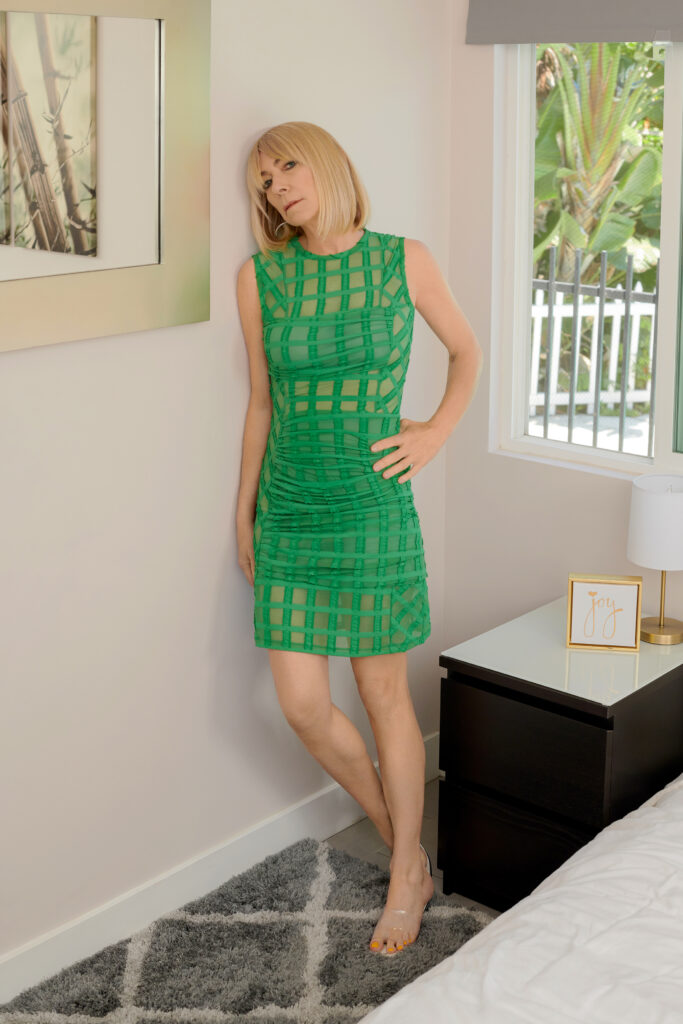
Fast-forward almost four decades and it’s still mostly music. Minimalist improv duo Body/Head work as and when Gordon’s and Nace’s schedules align and she performs occasional solo sets, usually in a gallery or other alternative space where her view is that the audience may be more open, although she admits that increasingly she feels like “that’s not necessarily true as far as my comfort level goes”.
“Recently I played a weird store gig in New York,” she says. “It was the opening party for a very good company based out of Seattle, who were launching a book of photos and the proceeds of this launch were going to environmental causes. There was this bluegrass band with flannel and beards that played, then a DJ. And then I played guitar, totally improv and I was like, ’I don’t know how this is going to go over!’. It was such a weird scene.”
Context and environment – in the non-eco sense, although there’s a brief, tart comment on our messed-up relationship with the oceans on the new album’s ‘Don’t Play It’ – are current themes in Gordon’s visual art. Her recent solo exhibition at IMMA in Dublin, entitled ‘She Bites Her Tender Mind’, featured among other works one of the drawings from her Airbnb series, in a multi-gallery exploration of transient faux domesticity and actual versus idealised lifestyles. Considered in this light, the brutally anonymous surroundings of a Premier Inn lobby feel like a fitting choice for this interview.
The album’s title, ‘No Home Record’, riffs on Chantal Akerman’s final film, ‘No Home Movie’ and is slyly ambiguous: depending on where the emphasis falls, it refers to either domestic displacement or the disappearance of the physical audio recording.
“It’s meant to be, yeah,” says Gordon. “And I was thinking about what makes a home and if you move away from somewhere and come back, that it’s different and the same.”
The single ‘Air BnB’, then, is a clanging, cacophonous number with a lurching drive, mention of “Andy Warhol prints” and “blue towels and water bottles” and the satirical chorus chant “Air BnB / Gonna set me free” plays to her obsession with décor trends in these alternative homestays.
“I’m kind of interested in the idea of home and escaping from home and the way people decorate Airbnbs,” explains Gordon. “It’s more looking online at them and it’s, ‘Oh my god, everything matches and the art is slogans and driftwood’. They’re kind of cool things, if I could figure out how to transfer that into fine art. That’s what I’m trying to do now.”
‘Air BnB’ also pays tribute to Arto Lindsay’s guitar playing.
“I always loved his contrast between melody and dissonance,” says Gordon, “and Sonic Youth have a lot of that, too. That song ‘Hungry Baby’ [on ‘No Home Record’] is, in my head, like a homage to The Stooges, who are weirdly underrated in a way, even though Iggy Pop performs still and people love him. But to me, the Asheton brothers were the shit and without them, there’s no Stooges. So the rhythm comes from that and the lyric “20, 20” references “1970, 1970”. I wanted to celebrate older stuff that had influenced me and bring it into the now.”
In an interview around her IMMA exhibition, Gordon revealed that for years she wanted to keep her art and music separate, but that increasingly, she finds the two merging. As someone who’s both an astute observer and selective absorber of popular culture, that’s hardly surprising and it explains her ongoing fascination with the language of advertising, first lifted wholesale for her lyrics to Introjection’s ‘Cosmopolitan Girl’, and her recent referencing of hashtag culture and use of Spotify playlist names in her word paintings.
Gordon’s lyrics are often proclamations: removed from their original context, they allude to… something, but it’s often hard to know exactly what. Crucially, they’re also attention deflectors. Despite the litany of first-person claims in ‘Cookie Butter’ – “I think, I want, I was born, I fell, I drank, I miss, I pretend…” – the track reveals nothing about Gordon herself.
“I think it’s just a natural expression,” she offers, when asked whether this is a conscious ploy. “Or maybe it’s a little protective. But I’m a very shy person; on stage I feel uncomfortable and vulnerable, in a way.”
Which some might say makes performing a rather perverse choice of long-term career.
“It’s very perverse. But at some point you just have to go for it,” she says.
It seems this tendency to leap in, boots laced, before she considers the public-facing trials likely involved, has served Gordon’s purpose well. It’s why stepping into the spotlight with her own name attached to a project turned out to be more significant than she could ever have imagined.
“Maybe that’s why I have so much anxiety,” she laughs. “But once I’d decided to do it, I didn’t really think about it and it was only when all the press started happening that I thought, ‘Shit’. But that also happened with my book [‘Girl In A Band’] and I really wasn’t prepared for all the press I had to do. Books are a big deal for people: huh, who knew? I think it’s a protective mechanism that I don’t think things like that through.”
Gordon has spoken before about the difficulty of separating art from context, which raises the issue of whether the same is now true of music, much of which is pitched as a backdrop to a range of different activities, moods and even emotions. Her music clearly demands engagement.
“I don’t know how my record fits into the landscape of contemporary music,” she concedes. “I don’t feel like it fits into Spotify. Elaine Kahn, who’s a poet and a friend of mine, made an interesting observation: she said that my music isn’t so much something you listen to as experience. And I think that’s what brings it more into the art world.”
It’s also what ushers her music into the fraught arena of “cool”, a term that’s now frayed beyond sensible use.
“It has been pretty much leached of meaning, but then you still know when someone’s cool. I don’t know what it is,” she muses. “Maybe it’s a certain ease or something and not doing what everyone else is doing, but that’s kind of branded now. I love this interview Iggy did a long time ago: I think it was on the Tom Snyder show and he was pretty young. He’s asked about being cool and he’s like, ‘I’m just a dork’.”
Avoiding the question of how she feels about having the label pinned on her, Gordon adds, “I think people who are truly cool don’t care. I really don’t know.”
‘No Home Record’ is out on Matador
